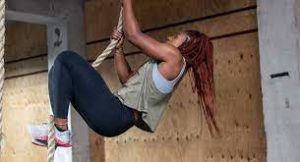
Two cheers for the pronoun “I” in poetry! OK. One cheer, maybe? The upstanding pronoun has been under attack in some quarters because it seems to make poetry less universal to the reader and more of a diary delight exercise for the poet. But is it, really?
What’s terribly wrong when the “I’s” have it in poetry, anyway? Is it that difficult to identify with the author if it’s all about him or her? In prose, the opposite is true. First-person point of view, a standard from way back, is considered the most intimate, hail-fellow-well-met of all the POV’s and the surest ticket to winning readers over. In fact, after a while, the readers adopt the “I” as themselves. Writer becomes reader seamlessly!
So why should poetry be any different than prose? Is it because first-person poems are so overwhelmingly popular? Is it the hipster syndrome, wherein you rebel against anything the masses take to?
It should be pointed out, too, that “I” isn’t always as simple as it looks. Readers tend to assume the pronoun refers to the poet, but not necessarily. It of course can be a persona poem, wherein the “I” is actually a character of the poet’s imagination, the same kind readers are more used to seeing in novels and short stories. Thus, you would not refer to “the poet” in the poem, but “the speaker” in the poem.
That’s how beguiling the “I” is. It charms, it confuses, it leads you down unexpected turns once your assumptions are challenged.
Hey. My philosophy on poetry is big tent. Want the first-person point of view early and often? Be my guest. How about the present tense? If it works and makes your words more immediate, you have my blessing. A form poem? Very mathematical of you in a poetic way, but it’s a free country. I’ll be cheering from the free verse sidelines! “I” as yourself? It’s legal. As another “I”? Also within the parameters.
Maybe I’m laissez-faire about “I” because of this blog, an exercise in solipsism if ever there was one. Each of these posts is riddled with the pronoun “I.” Were I to count them in this entry, for instance, I wouldn’t be surprised if there were dozens.
That said, nothing surprises me anymore, including criticism of poor, innocent pronouns with backgrounds that are simply complex. In poetry, a prodigal “I” is cool.
As self-promotion, even studiously undercover, though? Less so. Your poetic license doesn’t cover marketing, but we all have to make a living—or, as they say in poetry circles, NOT make one. Thousands of people read my blog posts. Only the few and the proud have purchased my books.
Over and out, collective I-sorts!
***

